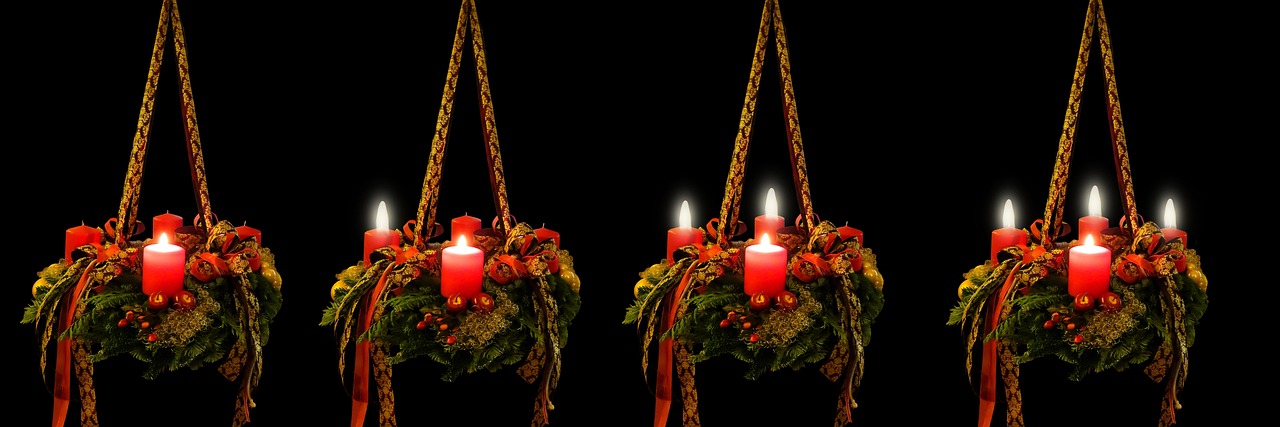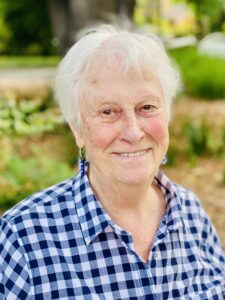- All
- Wisdom
- We Stand on Their Shoulders
- Vocation
- Uncategorized
- Stories Seldom Heard
- Spirituality
- Social Justice
- Prayer
- Peace
- Oneness
- Love
- Letting Go
- Lent
- Joy
- Inspirational Images
- Hope / Healing
- Holy Week
- Gratefulness
- God's Presence
- General News Stories
- Forgiveness
- Finding God
- Faith
- Easter
- Dominican Saints
- Discipleship
- Courage
- Christmas
- Catholic Sisters Week
- Care of the Earth
- Blessing
- Beauty
- Advent
- #justiceOPportunity
Pope Francis, the Synod, and the Advent Prophet Isaiah 2:1-5
Sr. Patricia Bruno, OP

292nd Edition December 2023
 The SSH Community forms a vast network of faith-filled people. Over four thousand people throughout the United States, Australia, and New Zealand receive my monthly reflections on Scripture and Church documents. Most of you use these reflections for private prayer. Other people have used them for group study and as a basis for Retreat Days. It is a joy to share them with all of you.
The SSH Community forms a vast network of faith-filled people. Over four thousand people throughout the United States, Australia, and New Zealand receive my monthly reflections on Scripture and Church documents. Most of you use these reflections for private prayer. Other people have used them for group study and as a basis for Retreat Days. It is a joy to share them with all of you.
December 3rd is the First Sunday of Advent. As we look around our world and listen to the news our hearts are heavy. Yet, when we turn to the Advent scriptures, Isaiah sets before us a vision of the peaceable kingdom. He directs us to stay awake. Be vigilant at all times. Trust in God’s vision for the world. Allow our hearts to be stirred with hope.
Isaiah has a vision that has not come to fruition. Neither in Isaiah’s time nor in ours. The swords are not beaten into plowshares and the spears into pruning hooks (Is 2:5). The cow and the bear do not graze together in peace. The nursing child better not play over the hole of the asp and the weaned child has been taught not to put its hand over the adder’s den (Is. 11: 8). The peaceable kingdom of God has not come to fulfillment.
We might be tempted to say, “Impossible. This vision of the peaceable kingdom is not going to happen in our time. So why try.” Yet, Isaiah and Pope Francis in their writings remind us of the importance and power of our imaginations. In other words, imagination is the first step in actualizing a different world. If we cannot imagine situations differently, there can be no change for the better because imagination is more than wishful thinking. It is visualizing what God’s dream for us could look like in our day, in our situations. It also requires the hard work of identifying the steps that are needed to make God’s desires become a reality. Imagination, creative planning, tenacious and consistent work, a discerning spirit, daily prayer, and trust in God all go hand in hand. They are a family unit, and I think I must add courage. Only God knows how God will use us to help fulfill the vision God has for us.
December 3rd is the First Sunday of Advent. We hear “Be watchful! Be alert! You do not know when the time will come.” On Monday, Isaiah offers us an impossible vision. He also offers us a process to help God’s vision become a reality. Isaiah says, “Come to the mountain of God…so that God may teach you new ways and you may walk a new path” (Is. 2:3). This is a call to prayer and serious analysis of our human situation. As the Advent readings continue, Isaiah expands God’s promise of peace and renewal. He encourages us to dream along with him. He implores us to place our trust in God. Then, he challenges us to put our dreams into practice in small and large ways.
So perhaps an Advent question we might want to ask ourselves is, for what do I dream? For what do I long and yearn? Is it for peace in our families and our nation? Is it that the hungry in our cities will have food? Is it that we will find just solutions to unjust situations? Advent is the time to live into the “not yet world” we pray for. It is a time to begin taking steps to make God’s vision a reality. In other words, in our daily lives make conscious decisions that will bring about peace, not war, in our families, work places and in our world. We can put food on the table of the hungry by giving the money we would use for one meal to a homeless person we meet on the street, a shelter or local soup kitchen. We might not have the political power to change an unjust situation, but we can demand our elected leaders through phone calls and letters to act justly and speak truthfully. A while back we sent a supportive note and a bouquet of flowers to one of our representatives who made a just, but a controversial political decision. (No, we did not receive a “Thank you” note.) We can show our compassion by attending the funeral or writing to the family of a person who was murdered by a violent act.
Isaiah encourages us to be creative in our responses. It is only when we get involved that we will be able to see the next step that needs to be taken. He urges us to see beyond the reality. In these cold dark evenings, Isaiah warns us not to go to sleep, but dream with our eyes wide open and pray for direction. Rumi, the 13th century Islamic scholar and mystic says it poetically:
The breezes at night have secrets to tell you. Don’t go back to sleep. You must ask for what you really want. Don’t go back to sleep.
Ten years ago, Advent 2013, Pope Francis published The Joy of the Gospel (Evangelii Gaudium). Many of the themes in Evangelii Gaudium and the Pope’s other writings are echoed in the report from the Synod on Synodality. Pope Francis’ writings are filled with hope while at the same time they emphasize the importance of having a realistic understanding of our human situation. Pope Francis boldly states, “We do not live better when we flee, hide, refuse to share, stop giving and lock ourselves up in our own comforts…Such a life is nothing less than slow suicide” (1). Realizing the dire necessity and depth of change that must take place, neither Pope Francis nor Isaiah hesitates in expressing their dreams for a just society. They are not small dreams. Isaiah, as well as Pope Francis’ books, Come Let us Dream and The Name of God is Mercy stress the importance of placing our faith in the midst of the world situation and trusting in the power of God to change willing hearts.
The Synod on Synodality’s process and documents also express this hope. Trusting in God’s promise to guide us, we prayerfully face our unknown future with hope. The October 2023 Synod in Rome has published the main ideas that surfaced during the Synod discussions. A second document will be published soon. It will give us more guidance so we will know how to proceed this year in our conversations with new information. The time between October 2023 and October 2024 is extremely important. Theologians, canon lawyers, historians, pastors and others will join with the Synod members and all of us as we move forward in our prayerful discussions. The information that is gleaned from these gatherings will be presented at the Synod’s Second session in October 2024. The Synod will then present its insights and suggestions to Pope Francis for further discernment and prayer.
The following are some general comments concerning the October 2023 Synod Report (2). There was an enormous appreciation of lay involvement. Disagreements and uncertainties were acknowledged. The report addressed the concerns of women both in society and in the Church. “It is urgent to ensure that women can participate in decision-making processes and assume roles of responsibility in pastoral care and ministry.” Those who experience poverty are to be placed in the center not on the margins of the Church. They have much to teach us. Systems within the Church that create or maintain racial injustice need to be identified and addressed. Further structures need to be developed to prevent abuse. A review of priestly formation programs is necessary. Lifelong formation programs for laity that foster an appreciation of their gifts was acknowledged. The need for liturgical languages to be more accessible was recognized. The report questioned the emphasis on the liturgical ministry of the permanent diaconate. Should the diaconate focus on serving those living in poverty? The Synod called for a more attentive listening to the local churches. There was a call for an updating of canon law. The promotion of small Christian communities who share the Word of God and the Eucharist was supported.
If you would like to know how to receive more information concerning the Synod, its process, and further conversations, don’t hesitate to contact me. I would be delighted to offer some suggestions. In the meantime, may the light of Advent move us to deeper prayer and conscientious decisions. “Don’t go back to sleep.”
